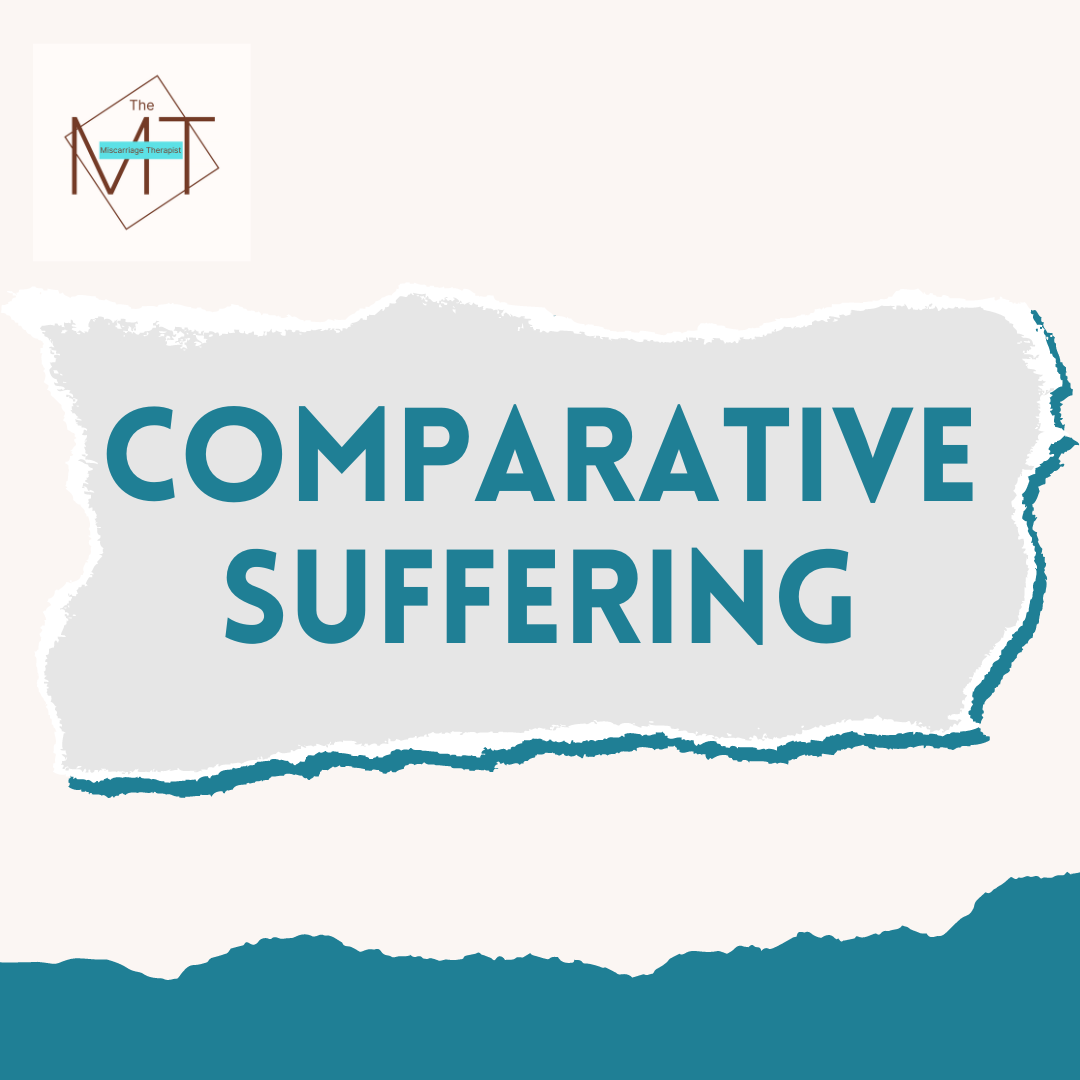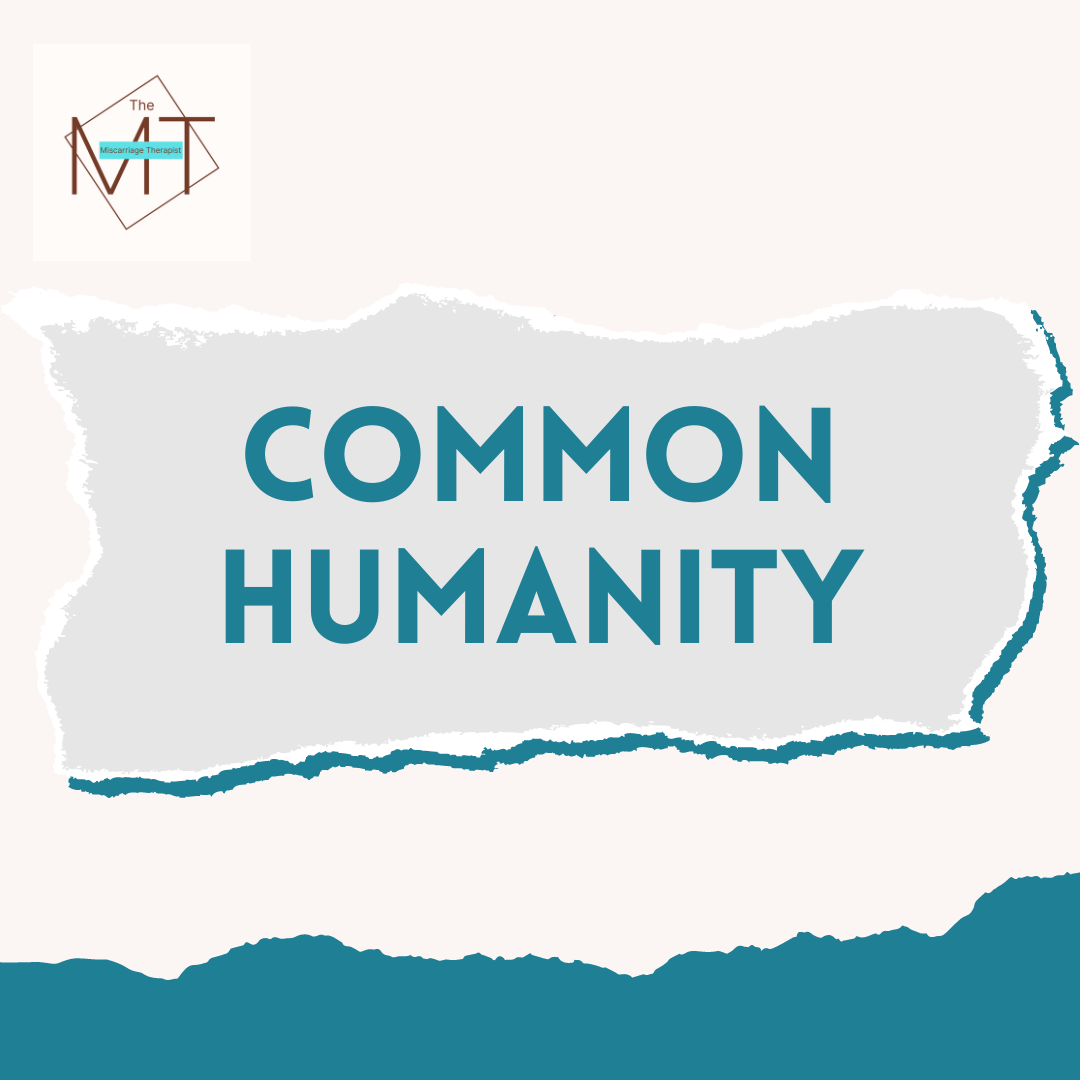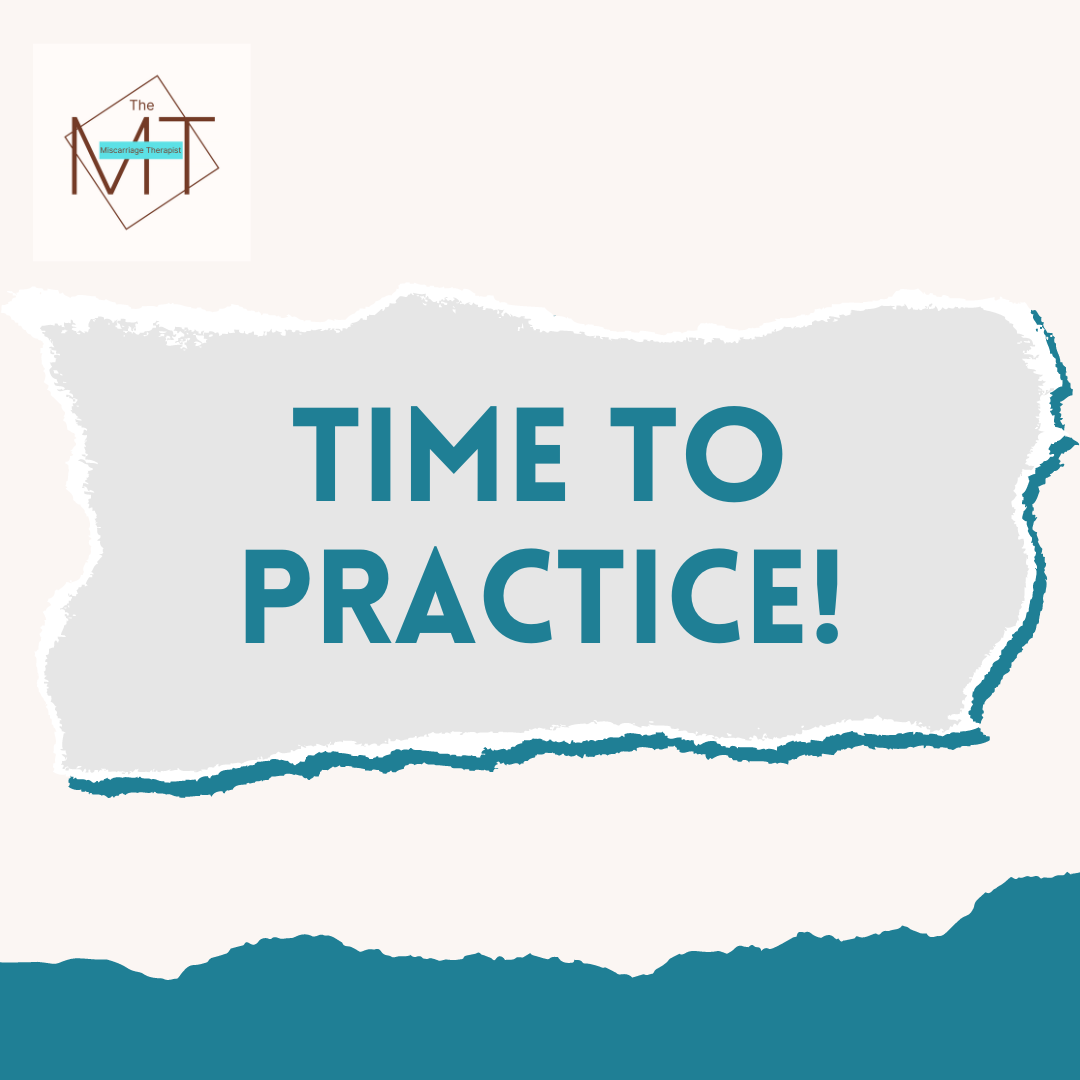Over the last three days, we’ve talked a lot about how to care for ourselves. We’ve explored mindfulness skills, including observing and describing our thoughts. And we talked about self-compassion and acts of kindness.
Today, we are going to explore another aspect of self-compassion: common humanity. Furthermore, we can use common humanity to reduce comparative suffering, a feeling that comes up often in the world of pregnancy loss.
I’m 22 years old, and I just lost my baby the day after I had my positive pregnancy test.
You think that’s bad? I’m 26 years old, and I just had my first miscarriage at 6-weeks.
Hey - I’m 32 years old, and I had my third pregnancy loss.
I have all of you beat. I’m 37 years old, and I delivered my stillborn daughter.
This is comparative suffering. And it serves no one.
This rhetoric harms others and invalidates their pain. But it also harms ourselves. When we are unable to support others in their pain, we often struggle to support ourselves. Our inner monologue can start to look like this:
I just had a pregnancy loss at 7 weeks. There was no heartbeat. I’m devastated. But I shouldn’t be. I could be worse, so I need to get over this. But I’m really hurting.
Comparative suffering is the practice of ranking, evaluating, and judging painful events. It is highly detrimental to our emotional wellbeing. It is saying, “you think your 6-week miscarriage is bad? Try having one at 11-weeks!” It’s discounting someone else’s pain because you think it isn’t as bad as your own pain.
Comparative suffering is also discounting your own pain. It’s saying to yourself, “I shouldn’t be sad because I had a miscarriage at 11-weeks. My cousin had a stillbirth at 22-weeks.”
When we engage in comparative suffering, we feel invalidated, as if our grief does not matter. This even happens when we rank our pain above someone else’s: when we are unable to navigate someone else’s pain, we ultimately are unable to navigate our own. Because our pain feels too heavy, we engage in this maladaptive coping skill (meaning, a way we cope that does not work!), and we minimize others’ pain. If I minimize your pain, then I can minimize my own pain and try to move on.
But we don’t move on. Instead we feel disconnected from others, and we reduce our capacity for empathy – empathy toward others, and empathy toward ourselves. When we don’t honor our pain, it intensifies. When we don’t honor others’ pain, we conserve kindness and empathy. And kindness and empathy are unlimited resources. No one is served in this conservation.
Antony Polonsky, a professor of Holocaust studies at Brandeis University, refers to this as the “suffering Olympics.” I am not out to win a gold medal in those games! The most important pain I feel is my pain, and the most important pain you feel is your pain (I’m paraphrasing from David Kessler, an expert on grief). Pain is an inevitable part of life, and rather than competing, we can use this to connect with one another. I might not know what it feels like to have a stillbirth, or have my infant pass away when she is 72-hours old, but I’ve felt all of the feelings that underlie those situations: grief, anger, hopelessness, anxiety, doubt.
Comparative suffering disconnects us; we engage in a series of empathic fails which, overtime, erodes our relationships. Empathy connects us, and allows our relationships to deepen in a beautiful, vulnerable, and authentic way. One of the ways we combat comparative suffering is to practice common humanity.
When I had my second pregnancy loss, the first person I told was my friend, Alexa. Alexa’s first pregnancy ended when she was 20-weeks pregnant, due to Pre-Premature Rupture of the Membranes (P-PROM). Alexa’s water broke, and her daughter survived three days before she passed away. When she first told me her story, her two-year-old son was running around the living room. Even though a few years had passed, she still wept when she shared this story. When I told her the news of my own loss, she immediately cried with me. She said, “Loss at any stage of pregnancy is awful. I’m so sorry.”
That’s common humanity! Common humanity is the understanding that unpleasant feelings are part of the human experience, that pain is universal. We are connected not only by the joys in our lives, but in our struggles, heartaches, and fears.
Common humanity is a key component in what connects us. When we fail to recognize that we are not alone in our struggles, we increase our feelings of isolation and self-pity. This leads to a hyper-focus on the self, creating a tunnel-visioned mindset, which only deepens our feelings of isolation and disconnection. Therefore, by improving our self-compassion, and decreasing self-judgments, we enhance our ability to feel compassion for others. Compassion for others, in turn, increases our sense of connection to ourselves, thereby decreasing feelings of sadness, depression, and anxiety.
Whenever I post on The Miscarriage Therapist, I imagine a group of us reading together, grieving together, connected by this one thing. We might not know one another, but I can feel all of the other loss moms and dads sitting around me. I don’t have to know you personally, but I know your pain. And you know mine! And, when we do finally meet, or when we finally share our story with the person sitting next to us, I find the response astounding and comforting: the response of connection. You’ve had a miscarriage? I’ve had one too. We instantly feel less alone.
Today, as you continue to practice observing and describing your thoughts, and practicing those acts of self-kindness, notice the ways in which you are judging your pain and judging others’ pain. Notice the times you are practicing common humanity, and notice the times when you are engaging in comparative suffering. This is the day we can start to really reframe those thoughts we noticed on day one and two of this practice. When you notice you are judging your own pain compared to someone else’s, stop, take a breath, and reframe it as a common humanity thought. If you start to judge someone else’s pain, do the same thing.
Tomorrow, for day five, we are going to use this and start targeting the beliefs we have about ourselves as it relates to pregnancy loss.






